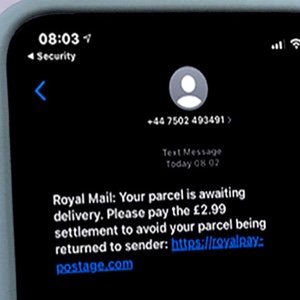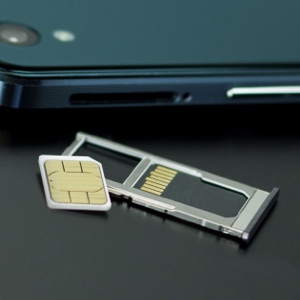Go paper-free
Amend paper-free preferences for your statements and correspondence.
Scams come in all shapes and sizes, from suspicious emails to fake calls. Fraudsters always look for new ways to try to steal your details and money.
Find out which scams are common right now, how they work and the steps you can take to stay safe.

How does it work?
A person you trust recommends someone who can help you get a work or student visa or visa sponsorship.
You contact them by phone, text or in person.
They ask you to pay a fee upfront and may want extra payments too. Sometimes, they can offer you a job as well, but only if you get the visa.
If you pay, you won’t receive any visa documents, and they’ll stop all contact.
How to avoid this scam
If anyone, even family or friends, recommends someone to help you get a visa, make sure they’re genuine first.
Research any company, solicitor or individual to check they’re real.
Go to the GOV.UK website to find out how to apply for a genuine visa.

How does it work?
Fraudsters claim to work for a company selling repossessed properties.
They let you view a property and will give you a purchase agreement.
If you agree to buy a property, you’ll get a form through the post about transferring ownership.
But someone else owns the property and it was never for sale in the first place.
How to avoid this scam
If anyone contacts you about buying a property, search online to check if they’re genuine.
Search for any information, such as reviews, contact details and a listing on Companies House.
Always hire someone like a solicitor or conveyancer to carry out the legal work that’s needed to buy a property.

How does it work?
A text claims to be from Royal Mail to say a parcel is awaiting delivery. To get it you need to click on a link to pay a fee.
The link goes to a fake Royal Mail page that wants your personal and banking details.
If you’re expecting a delivery, Royal Mail won’t get in touch to ask for your personal or banking details.
How to avoid this scam
If you get a text like this, don’t click on the link or reply. Just delete it.
You can report a scam text for free to 7726.

How does it work?
Fraudsters can call or text to pretend to be your mobile phone provider. They may ask you to verify a message with a code, or click a link to enter a code online.
Another trick is to use your personal details to call your provider to either:
How to avoid this scam
If you get a call that wants a code, hang up. If it’s a text, delete it.
Never give anyone who calls or texts you a code, or enter it online for them.
If your phone suddenly stops letting you make calls or send texts, contact your provider on a number you trust right away.
You can report a scam text for free to 7726.

How does it work?
Fraudsters can call or text to pretend to be your mobile phone provider. They may ask you to verify a message with a code, or click a link to enter a code online.
Another trick is to use your personal details to call your provider to either:
How to avoid this scam
If you get a call that wants a code, hang up. If it’s a text, delete it.
Never give anyone who calls or texts you a code, or enter it online for them.
If your phone suddenly stops letting you make calls or send texts, contact your provider on a number you trust right away.
They can give you tips on how to protect yourself and support on what to do if you’ve been a victim of fraud.
You can report a crime or get general advice from Action Fraud. They help banks and other companies combat fraud.
They offer advice on how to keep yourself and your devices safe from fraud.
UK Finance is there to support customers and to help make sure it's safe to bank.
Prudential Regulation Authority (PRA)
The PRA is part of the Bank of England. Their role is to make sure banks act safely and reduce the chance of them losing money.
Financial Conduct Authority (FCA)
The FCA is there to make sure banks work well so customers are protected and get a fair deal.
CIFAS can help to protect your identity. They can stop fraudsters from using your details to apply for things in your name.
This is a government site that gives advice on how to stay safe online.
This is part of the FCA site. You can use it to check on an investment or pension deals to help you avoid scams.
Bank of Scotland does not control the content of any of the websites linked to on this page.
Social media scams
Social media remote work scam
How does it work?
You get a text or call out of the blue from a recruitment agency or on social media.
They’re offering remote work to like or share content on social media, like TikTok or Instagram.
They promise you can earn hundreds of pounds a day.
All you have to do is reply to their message.
Fraudsters may pay you a small amount. But to earn more, you must send your money for training or some other kind of fee.
How to avoid this scam
Always check that a job offer is real.
Search for the job advert online. See if it’s on any official website you can trust.
Remember a genuine business will never ask you to pay money upfront.
If you get a text out of the blue, forward it to 7726 to report a scam.
You should hang up on calls from unknown or hidden numbers.
Learn more about this advance fee scam.
Bitcoin
How does it work?
Fraudsters use social media to offer Bitcoin (BTC) deals.
They often promise to double your money if you pay directly to a BTC address. But they’ll keep anything you send.
How to avoid this scam
If you see a social media post or get a message about Bitcoin, don’t reply. Report it on the platform, then delete it.
QR code ticket scam
How does it work?
Fraudsters advertise tickets for sale on Facebook Groups or other social media.
Tickets can be for any event, especially sold out concerts, football matches and festivals.
Usually, they want you to pay in full by bank transfer before you get a QR code for the event.
But they may email you a QR code before you pay or after you transfer some of the money.
The QR code is either fake or the ticket belongs to someone else.
After you pay, a fraudster will either block you or ignore all your messages.
How to avoid this scam
Never buy any tickets from social media.
Always buy tickets from a trusted company or official resale website.
Pay for tickets by debit or credit card. Or use a payment service that protects your money, like PayPal goods and services.
Learn more about social media scams
Learn more about social media scams
Fraudsters use social media to scam people. We can guide you on how to use social media to keep your details and money safe from scams.